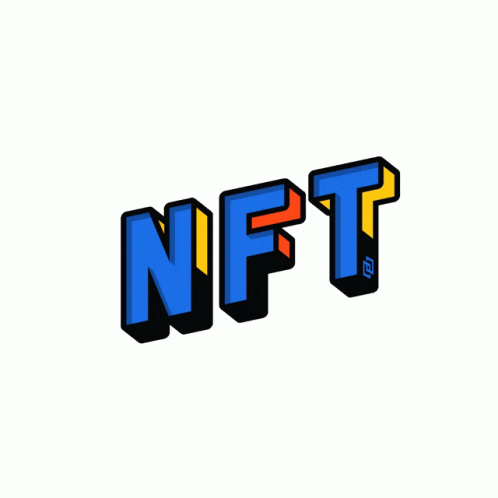Good morning, the United Arab Emirates will shift to a working week of four and half days with a Saturday-Sunday weekend from January 2022, to better align its economy with global markets.
Real estate professionals reading this, say goodbye to important work related calls from Dubai on Sunday afternoons.
But, but, but… don't leave yet because there's a whole lot of interesting stuff trailing below.
😷↔😷
The Omicron Effect
News about Omicron - a notorious, potentially more transmissible new COVID-19 variant has rattled markets and businesses to the core, resulting in global travel bans and renewed fears of a lockdown.
But will omicron infect the housing market? Or is real estate immune?
Wait And Watch
🎙 “It has definitely created a fear but it may take a few more days to a month to see the intensity of its impact on the economy and the overall real estate sector,” feels Arvind Nandan of Savills India.
If the situation aggravates, demand for commercial real estate could take a temporary hit.
People Need A Place To Live
However, the housing market may be more immune to Omicron because of what we have already seen in the past waves of the virus.
Omicron could lead to a continuation of the housing trends that have been playing out during the pandemic.
- Suitable housing inventory could become scarce if construction is affected,
- Prices will remain steady but the growth in them will slow, and
- the popularity of larger homes, and the suburbs will endure.
In One Sip?
Covid is not a new crisis anymore and the buying and selling process has already made necessary adjustments.
Unless the ceiling goes yellow, homebuyers may be more willing to continue their searches, resulting in a steady rate of housing transactions.
🤞
Coworking With A Citrus Twist
While the usual office occupancy is about a big fixed cost - rent, coworking spaces are like gyms, where one pays dues, not rent.
Most provide a pantry, internet, utilities, maintenance, and shared conference rooms - a plug and play version of the tedious-to-set-up conventional office.
And, coworking is a sure fire way to be around other people, reducing the 'Zoom Gloom' isolation many of us feel.
Quick Recap
Between 2017-19, co-working expanded strongly and total space grew by 2.3X in 2019, but the infamous waves 1 and 2 battered the segment and across top operators, the average occupancy level dwindled down to 65% during 2020.
Bringing More To The Office Desk
To make a comeback, coworking approaches are all about new twists to the good old shared economy.
- Fun Settings - coworking brands are offering locations in entertainment districts filled with appealing diversions from the office desk, whether dining and drinking spots, nightlife meccas or even sporting arenas.
- Work And Family - to maintain a niche, some coworking brands are offering work spaces with a mission to create a world in which both raising a family and running a business is the default setting.
At a time when many coworking spaces are restructuring or changing hands, these small pivots in the way spaces are being reimagined is a good sign for what could well be the future of most offices.
NFT And Real Estate
We thought that the easiest way to understand the 'non fungible' would be to start with the 'fungible.'
On the street, fungible is something that can't be distinguished from another thing, it is interchangeable, substitutable or uniform.
For example, before a commodity can be traded on a commodity exchange it must be fungible.
When two things are completely different and distinguishable with doubt, they are non fungible.
Non Fungible Tokens (NFTs) And Real Estate
In the real estate domain, NFTs are unique digital titles (tokens) to property, either real or virtual, that are stored on a blockchain ledger.
Today, everything from selling homes to mortgages are being tested as NFTs to improve workflows, transparency, and speed in real estate transactions - often complicated by never ending layers of document verification involved.
Practical Applications Today
NFTs are pretty easy to implement and execute as a gimmick/souvenir, but it's a whole new token-game to apply them on the high street.
The immovable property world requires two kind of tokenisation:
- Fractional Ownership: FO tokenisation is simple and already in limited-case use in the industry. It's similar to, say a crowdfunding platform that allows investors to buy shares. Each fractional owner of the property owns a number of tokens that represents shares in the property.
- Entire Asset: EA tokenisation is where NFTs begin to balk, because this concept fails unless the actual property deed is turned into an NFT. That will require a policy change from governments all over the world, as there must be a new asset class created for an EA token to exist for a real estate deed.
How Does It Really Work?
Real estate NFTs work just like any other NFT. They're bought (meaning you have purchased a share in the property) using a cryptocurrency, held in a digital wallet, and, if speculative, are sold again for a profit.
😎 Real estate NFTs promise easily traceable, secure records of ownership for a wide range of real estate investments. Currently, they are the only way to buy and sell virtual land/property in the metaverses, which are emerging as an investing frontier.
😳 Like all things crypto, real estate NFTs are volatile too, and their value can go to zero without warning. Real estate NFTs in virtual real estate are risky investments for the time being, while NFTs that represent fractional ownership in real world property should be more stable.
---------------
Please Note: Wednesday is Latin for ‘almost Friday’. 😉
We will be in your mailbox again tomorrow morning, as non-fungible as ever.
Have a great day. 💚
☕ The Crew@Ginger Chai





